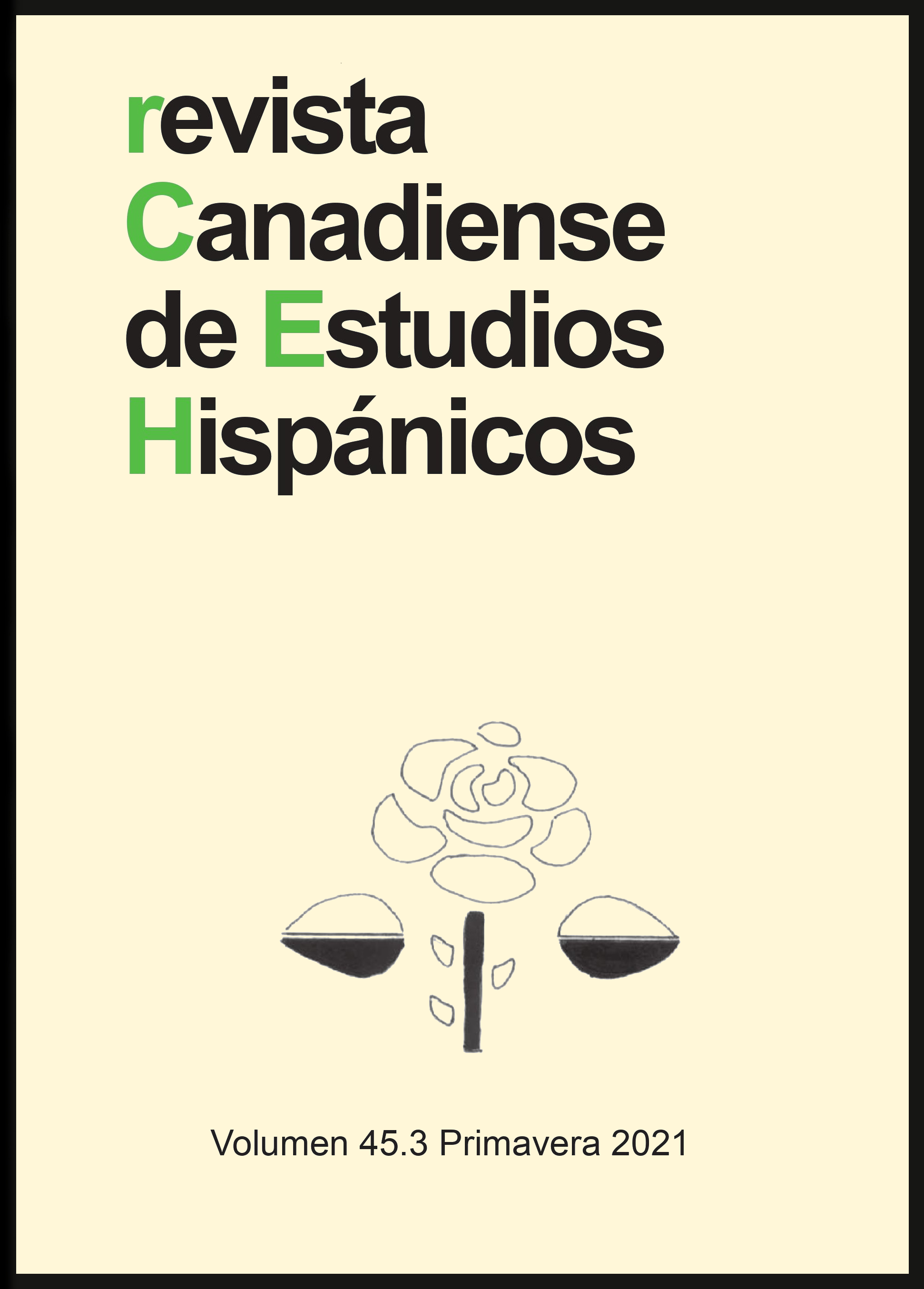Mapping the Memory of Armed Conflict through Cancer in Gabriela Ybarra’s El comensal and Héctor Abad Faciolince’s El olvido que seremos
DOI:
https://doi.org/10.18192/rceh.v45i3.6805Keywords:
cancer, memory, armed conflict, family, bodyAbstract
This study examines how Spanish author Gabriela Ybarra and Colombian Héctor Abad Faciolince tackle the parallel deaths of family members due to cancer and to the violence of armed conflict in their autobiographical novels El comensal (Spain, 2015) and El olvido que seremos (Colombia, 2006), respectively. Looking beyond the trope of cancer as metaphor, Ybarra and Abad Faciolince employ medical language to articulate the intergenerational mysteries surrounding instances of untimely death within their families. Cancer, thus, moves beyond a metaphor for violence and destruction, becoming a mode of representation for studying and articulating the unknown.
References
ABAD FACIOLINCE, HÉCTOR. El olvido que seremos. Bogotá: Alfaguara, 2006.
ABAD FACIOLINCE, HÉCTOR. “Estética y narcotráfico.” Revista de Estudios Hispánicos 42.3 (October 2008): 513-18.
BUSHNELL, DAVID. The Making of Modern Colombia: A Nation in Spite of Itself. Berkeley: U of California P, 1993.
CASANOVA, IKER. ETA 1958 – 2008: medio siglo de historia. Tafalla, Navarra: Editorial Txalaparta, 2007.
CAÑA JIMÉNEZ, MARÍA DEL CARMEN. “Los paseos por Auschwitz de Héctor Abad Faciolince.” Romance Notes 54.1 (2014): 41-49. Web.
CONWAY, KATHLYN. Beyond Words: Illness and the Limits of Expression. Albuquerque: U of New Mexico P, 2013.
FANTA CASTRO, ANDREA. “Imágenes del tiempo en El olvido que seremos de Héctor Abad Faciolince.” Revista Letral 3 (2009): 28-40. Web.
FOUCAULT, MICHEL. The Birth of the Clinic: An Archaeology of Medical Perception. Trans. A. M. Sheridan Smith. New York: Vintage Books, 1963.
HIRSCH, MARIANNE. The Generation of Postmemory: Writing and Visual Culture After the Holocaust. New York: Columbia UP, 2012.
HUYSSEN, ANDREAS. Present Pasts: Urban Palimpsests and the Politics of Memory. Stanford: Stanford UP, 2003.
MUKHERJEE, SIDDHARTHA. The Emperor of All Maladies: A Biography of Cancer. New York: Scribner, 2010.
REYES ALBARRACÍN, FREDY LEONARDO. “El olvido que seremos y Mi confesión: testimonio, memoria e historia.” Revista Comunicación y Ciudadanía 4 (2010): 24-30. Web.
SCARRY, ELAINE. The Body in Pain. Oxford: Oxford UP, 1985.
SONTAG, SUSAN. Illness as Metaphor and AIDS and Its Metaphors. New York: Picador, 1990.
SULEIMAN, SUSAN R. “The 1.5 Generation: Thinking about Child Survivors and the Holocaust.” American Imago 59.3 (2002): 277-95.
“Todos los partidos condenan la nueva salvajada de ETA, atroz asesinato de Javier de Ybarra.” 23 June 1977. Madrid. ABC. Web. Accessed December 2018.
VANDEN BERGHE, KRISTINE. “Duelo por el padre y duelo por la patria. La poliatría en El olvido que seremos (2006), de Héctor Abad Faciolince.” Revista Canadiense de Estudios Hispánicos 40.1 (2015): 275–95. Web.
YBARRA, GABRIELA. El comensal. Barcelona: Caballo de Troya, 2015.
Downloads
Published
Issue
Section
License
Copyright (c) 2023 Mai Hunt

This work is licensed under a Creative Commons Attribution 4.0 International License.
Aquellos/as autores/as que deseen publicar en la RCEH o tengan publicaciones en esta revista aceptan los siguientes términos:
- La RCEH solo publica artículos inéditos.
- Los artículos enviados a la RCEH no deben estar bajo consideración en ninguna otra revista o editorial.
- Los/as autores/as podrán incluir imágenes cuando las consideren esenciales para su estudio. Es responsabilidad suya el obtener por escrito la autorización para su reproducción y presentarla a la RCEH.
- Los/as autores/as conservarán sus derechos de autor y garantizarán a la RCEH el derecho de primera publicación de su obra, el cuál estará simultáneamente sujeto a la Licencia de reconocimiento de Creative Commons que permite a terceros compartir la obra siempre que se indique su autor y su primera publicación en la RCEH.
- 12 meses después de la publicación de su obra en la RCEH, los/as autores/as podrán adoptar otros acuerdos de licencia no exclusiva de distribución de la versión de la obra publicada (p. ej.: depositarla en un archivo telemático institucional o publicarla en un volumen monográfico) siempre que se indique la publicación inicial en esta revista.


